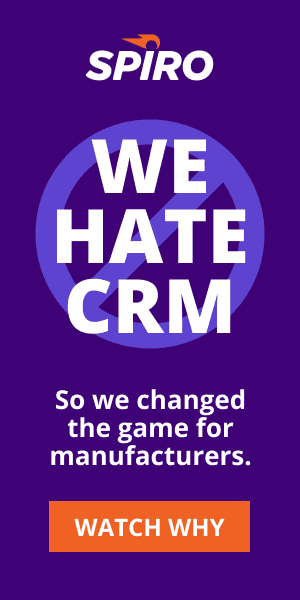10 Habits of Highly Persuasive Salespeople
Persuasion is at the heart of sales. The goal of any great salesperson isn’t to simply answer a customer’s questions and hope for a deal, it’s to methodically help guide the customer to arrive at the decision on their own. This is persuasion.
There are many things a salesperson can do to make more money, like using an AI-powered sales automation CRM. But becoming an expert at persuasion ranks as high as having a great work ethic when it comes to true sales success. Here are the ten habits of highly persuasive salespeople:
1. They listen
We always talk about how important it is for salespeople to be good listeners because it truly is. Most people are bad listeners, which makes those of us who aren’t stand out and makes customers feel heard and appreciated. If there’s one tip you can take away from this article, it’s to listen at least twice as much as you talk.
2. They know their value propositions
Amateur salespeople think they can “wing it” on every pitch, while highly persuasive salespeople know their value proposition inside and out. This means that almost any sales objection can be overcome, and they’ll never look like a deer in headlights or stumble over their words trying to improvise. Always know exactly what you’re selling and why someone would want it.
3. They aren’t pushy
Despite misconceptions, persuasiveness has nothing to do with being pushy. In fact, studies have shown that when you push someone too hard, they’re likely to just become more entrenched in their original position. Don’t push people to come to a decision, instead lead them to arrive at the decision themselves.
4. They don’t get defensive
The biggest mistake many salespeople make is letting their ego get in the way of closing deals. There’s a famous expression: “Win the argument and lose the sale.” Never get defensive or argumentative with a customer. Your job is to close deals, not convince someone that they’re wrong or make yourself feel better.
5. They adapt
Many sales training programs teach you to adapt to a customer’s body language, voice inflection, and line of conversation. This is because persuasion is just as much about adaptability as it is about presentation. Adapt your behavior to the customer and then once you’re in their world, help them make the decision you want them to make.
6. They aren’t patronizing
Persuasive salespeople never make the customer feel as if they’re being talked down to. There’s a big difference between being seen as an authority on a subject and making someone feel inferior. Always be mindful of the way you’re communication so that you’re on an even plane with your customers, and not putting yourself above them. You definitely don’t want to sound like a salesperson.
7. They ask the right questions
The best way to find out what it takes to close a customer is to ask them directly. The majority of time a salesperson spends talking should be asking questions to find out what the customer’s problems, needs, and desired solutions are. Ask the right questions and then use the answers to tailor a pitch that they’ll find difficult to decline.
8. They get to know their customers
Building rapport is an obvious part of sales, but the more persuasive salespeople do it in a genuine and authentic way, rather than just checking off boxes in a sales script. Dale Carnegie once wrote that he felt bad for people who aren’t genuinely interested in other people, and he couldn’t be more correct. Get to know people because you want to, not because you want their money.
9. They’re positive
If you’re unable to have a positive attitude at least most of the time, you might as well quit your sales job. Highly persuasive people are those that others want to be around, and everyone wants to be around someone with a great attitude. Look on the bright side of any situation and you’ll succeed. Only look at the downside, and that’s where you’ll end up.
10. They ask for the business
Although they’re not pushy, persuasive people aren’t afraid to ask for the customer’s business. If you spend time qualifying, building a relationship, and pitching a customer and then don’t ask for them to make a purchase, you’re missing an integral part of the sales process and not being a persuasive salesperson.

